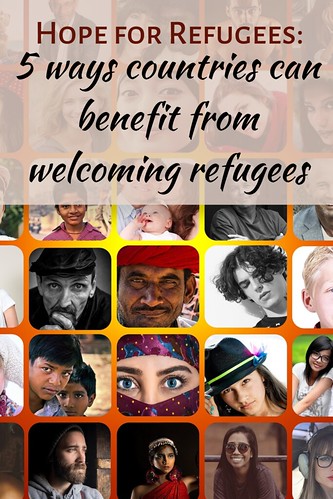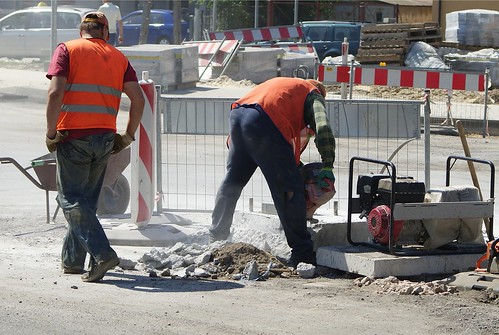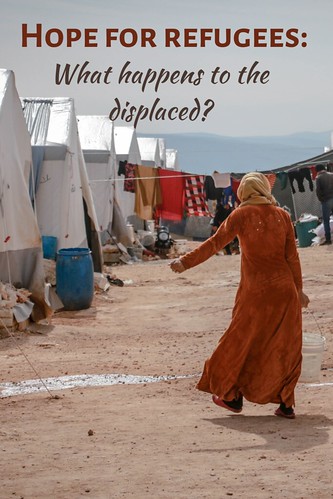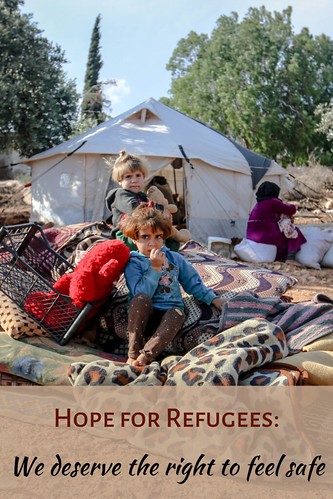Refugee is a word that is defined by the 1951 Refugee Convention as “someone who is unable and unwilling to return to their country of origin to avail herself of the protection of her country of nationality owing to a well-founded fear of being persecuted for reasons of race, religion, nationality, membership of a particular social group or political opinion.”
On the other hand, an asylum seeker (asylee) is a person who has applied to be declared a refugee, but the government of the host country is still processing the claim of the applicant and has not yet declared them a refugee.
To some people, refugees are unwanted and to others, refugees are seen as coming in to mooch off another country’s resources, take their jobs away, and adulterate their cultures. In other words, people who have different opinions about refugees, some unfavourable.
An important question to ask is: are the opinions true?

In this article, I will be discussing five merits of welcoming refugees into a country. The objective of this piece is not only to give refugees a sense of belonging and a reason to be proud of their refugee status, but also to give the readers a fresh perspective on the essence of refugees. It also seeks to encourage countries to be more welcoming to refugees.

A boost in the economy
One of the major advantages of welcoming refugees is seen in the economic sector of the host country. The large influx of human capital into the labour market, especially in countries with a large population of older people, will boost the economic growth of the host country.
Other than the refugees getting jobs, quite a number establish their own businesses—and this translates into job creation, taxable income, acquisition of properties, and increasing the growth of the pension funds of the country.
It takes a couple of years before a country begins to visibly see this particular advantage in its economy. Initially, the host country is expected to invest in the refugees by providing settlement and welfare assistance such as housing, education, health care, and facilities for easier integration (i.e., providing language classes, skills acquisition, and assessment training).

A country that allows its refugees to work or become entrepreneurs is more likely to stimulate its economy than those that have restrictions on refugees working. Countries such as Canada and Australia allow refugees and asylum seekers to work immediately. In Germany, persons seeking asylum are allowed to work after waiting 3 months for a decision on their claim. In the United States it is after 6 months, while most European countries allow a 9-month interval from the time a claim was filed.
The benefits of allowing asylum seekers to work include:
* Stimulating the economy of the host country
* Reducing costs allocated to the taxpayers for the upkeep of the asylum seekers
* Improving the mental health of the persons seeking asylum by easing some of the negative effects of the uncertainty in the asylum process
* Reducing the exploitation of illegal workers
* Improving the employability of the people seeking asylum if their claim for asylum is granted
* Allowing for smooth integration into the community.
An increase in productivity
The economic performance of the host country is sure to receive a boost with an influx of refugees. Quite a number of refugees or asylum seekers would have already obtained a university degree, have acquired some skill sets, and/or have a successful business back home before seeking refuge in the host country. Forged by this background and their willingness to prove themselves in new terrain, they would increase the productivity levels of the departments they work in.

Another reason for the boost in productivity is that since the level of qualifications or achievements of most of the refugees may not be recognized in the host countries; they may start out in entry-level positions in most companies. Their prior experience and qualifications may translate into having great performance levels.
Most refugees enter their host country without adequate financial resources. The qualifications they have managed to obtain may be not acceptable in the host country. Then add the discrimination they are most likely to face while seeking a job, it is quite a daunting experience. However, refugees are equipped with key entrepreneurial strengths of resilience, risk-taking, and resolve. For instance, in Australia, refugees are the most entrepreneurial migrants and are twice as likely to start a business in general.
Diversity
There comes a time when a community or state may become stagnant—not only in the economic sector, but also culturally. When this happens, younger generations often feel disconnected and tend to move out at the earliest possible opportunity, leaving behind a larger population of older people. However, with refugees’ integration into a community or state, the populace become exposed to new cultures, which enriches the culture of that society.

A diversified society boosts many things simultaneously, including population, culture, and economy. Diversity also serves to attract young professionals from other towns or states to be interested in living and working there.
One instance is the people of St. Louis, Missouri, who were once faced with a stagnant population. They realized the importance of a diversified society when they found that one of the main reasons for their stagnation was that they were not attracting enough immigrants. According to Anna Crosslin, the then-president, and CEO of the International Institute of St. Louis, “almost half of Generation Z is multicultural or multiethnic in some way. They want to live in a city that looks familiar to them.”
An effect on the labour market
There exists a common misconception that refugees or asylees take jobs that were created for natives of a host country. Studies have shown that refugees have a complementary effect on the job market, rather than a competitive one as it relates to the natives.
Here are five reasons to show that refugees hardly take jobs away from the natives:
* self-employed refugees directly create new jobs
* refugee innovators indirectly create jobs
* refugees fill labor shortages and stimulate the labor markets
* the high-skilled contribute to technological adaptation and the low-skilled to occupational mobility, specialization, and human capital creation thus creating new jobs by raising demand, refugees cause firms to expand, who, in turn, hire more workers

The misconception of taking away what is due for the natives goes beyond jobs. It cuts across both welfare benefits and the taxpayers’ money. The fun fact is that in almost all countries, refugees and immigrants are not allowed the same benefits as citizens, yet are taxed the same as citizens.
Skill Sets and Knowledge
We have earlier discussed how diversity in the population can bring development to a state; now let’s look at how companies and organizations benefit from diversity and refugees.
According to the United Nations High Commission for Refugees (UNHCR), data from the UK Labour Force Survey shows that 31% of asylum-seekers in the UK left education after the age of 20, which compares with 23% of those born in the UK.

This means that the majority of the adult population of persons seeking asylum have a university degree or its equivalent, and have held different positions, owned a business, or are still in school prior to leaving their country. They bring in novel skill sets and knowledge while addressing the skill gaps in the labour market.
In addition to these core skills, refugees have developed soft skills, such as adaptability, tolerance, and readiness to work—and are more likely to work well under pressure. This will, in turn, positively affect the performance level of the business.
A survey of German employers found that 80% of those that hired refugees were broadly or fully satisfied with their work. In the United States, 73% of employers surveyed reported a higher retention rate for refugees than for other employees.
Conclusion
Refugees are human beings that want what we all want: a place to call home, to thrive, and to be accepted. People and governments must stop blaming refugees and asylum-seekers for economic and social decline—because in doing so, they spread hate, fear, division, and violence. Instead, we are called to extend a hand of welcome to refugees for the following reasons:
It is the human way
It is a refugee human right to seek asylum, and
As we have seen, we need diversity and experience to stimulate and diversify our economy, which refugees offer.
Read more in this series:
Sandra Okafor is the Refugee and Forced Migrants human rights editor at Wandering Educators. She is currently studying a Master's in Human Rights and Diplomacy at the University of Stirling. She is motivated by the desire to impact knowledge and to empower others in creating a better world.



